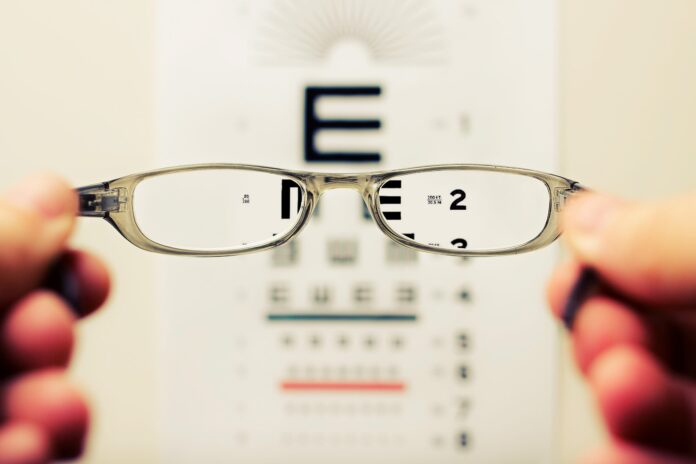2020 was a year when many of us were sick, and far too few of us were truly well.
COVID-19 forced the world to reimagine everything. How we live. How we work. How we keep ourselves and our loved ones safe. Not least of all, it exposed significant fractures in our healthcare system and revolutionized individuals’ approaches to their own health and wellbeing. In fact, according to the Cleveland Clinic, 62% of all people have adopted some type of healthy lifestyle change since the onset of the pandemic. That percentage jumps to 78% among 18- to 34-year-olds.
Like the massive cultural, artistic, political and economic rebirth that impacted every facet of life following the 15th-century Bubonic Plague, I predict we are headed into another period of Renaissance succeeding this pandemic—one predicated on wellness.
Now more than ever, people are taking a holistic approach to their overall wellbeing and seeking out science-backed solutions that deliver proven, personalized results. In the vision care industry, patients and eye care professionals (ECPs) alike are clamoring for new innovations and paths to better health. Here’s the opportunity I believe lies ahead for the industry and business landscape at-large – and it begins in our community:
From Eye Health to Overall Health
Our eyes are our windows to the outer world—a world that we’re increasingly experiencing through digital screens.
A survey by Alcon revealed that more than 80% of Americans are spending more time on screens, so it’s no wonder that nearly half have experienced their eyes feeling dry as a result. This is a more pressing issue than it may at first appear. In fact, the Tears Film and Ocular Surface Society’s DEWS II Report found that “moderate to severe dry eye disease is associated with significant pain, limitations in performing daily activities, reduced vitality, poor general health, and often depression.”
There is an inextricable link between our ocular health and our overall health—and people are beginning to recognize it. Basic needs like exercising regularly, getting the right nutrients and vitamins as well as drinking enough water can improve eye health. Symbiotically, taking care of your eyes can lead to improved health outcomes overall and reduce comorbidities—like diabetic retinopathy, a complication of diabetes, which is a leading cause of blindness. With this realization comes a prime opportunity for ECPs to become more than an annual doctor’s visit and become true partners in patients’ overall wellness journeys.
Putting Patients in Control
How do ECPs and health care communities capitalize on this newfound attention on eye care even further? By putting patients in the driver’s seat of their own vision care decisions.
For too long, patients have been simply marketed at. But today, we have an unprecedented opportunity to actually collaborate with patients to help them achieve better health outcomes. More and more, patients are becoming interested in innovations like comfortable contact lenses and dry eye relieving drops, which will help alleviate the issues associated with increased screen time. ECPs can start by helping patients manage their immediate symptoms, but ultimately, they need the help of an ecosystem of partners—eye care companies, insurers, employers, and government.
Going forward, the mandate is clear: We must work together to put patients at the center of their own health decisions. Currently, more than half of Americans do not have vision care coverage even if they are enrolled in health insurance. In the Fort Worth area and beyond, it’s incumbent upon employers and business leaders to review their benefits policies to ensure eye care is prioritized. Tech companies and physicians should also continue to partner in delivering increased flexibility through telehealth options, and health care companies and government agencies can make solutions more readily available through Rx to OTC switches.
Partnership is what saw us through the pandemic. Looking ahead, it’s that same spirit of collaboration that will help build a new era of wellness, redefined.
Carla Mack, O.D., MBA is Global Head, Professional Affairs at Alcon
Mack is Global Head of Professional Affairs at Alcon. She is responsible for leading the Professional Affairs strategy and bringing the voice of the Eye Care Professional to Alcon’s business development pipeline.
Mack joined Alcon in January 2014 and held various leadership roles in the US Professional Affairs organization. As Head, Professional Strategy & Development, Carla led and developed the strategic professional communications plans aligned to the commercial, professional affairs and market development strategies. She also had responsibility for all multi-media professional training and education under the Alcon Experience Academy umbrella including peer-to-peer training via the Alcon Experience Center.
Prior to joining Alcon, Mack held roles in global medical affairs and global professional marketing at Bausch + Lomb, was a professor at The Ohio State University College of Optometry and was Clinic Director of the OSU Campus Optometry Services. While at OSU, she examined thousands of patients and taught courses in glaucoma management, specialty contact lenses and practice management. She has served as the chief editor of Contact Lens Spectrum and the Contact Lenses Today e-newsletter.Mack completed a hospital-based disease residency and earned both her Doctor of Optometry and her Master of Business Administration degrees from The Ohio State University. She is a Diplomate in the American Academy of Optometry Section on Cornea, Contact Lenses and Refractive Technologies.







